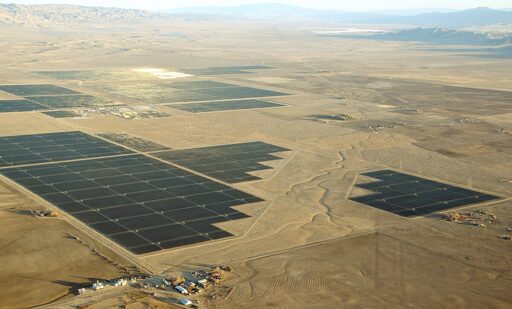“In the 12 months ending April 2025, solar generated 83.1 terawatt-hours (TWh) of electricity, compared to 81.6 TWh from natural gas.”
“Nationally, solar generation continues to climb. In April, solar supplied 10.64% of U.S. electricity for the month (marking the first time the country crossed the 10% mark) and contributed 7.35% of generation over the rolling 12 months. California, by comparison, produced 42% of its electricity from solar at its seasonal peak in April, with May expected to push that figure even higher.”
Good 'ol CA, long-time nation-leader.



So I’ve heard a typical set up is still dependent on grid power (typical set up => able to push power back to the grid), and so during a power outage, you still lose power at your home. Its my understanding one of the components required for the hook up to The Grid requires continuous power (in case you need to push/pull power from the grid) and since it can’t guarantee power from your panels, it gets that power from the grid (thus grid goes down, your whole home’s power goes down.
Don’t suppose you know more about this or can explain why this is/isn’t the case? This setup seems unintuitive and undesirable to me, and so I’d love to have proof that’s not the case, if it exists.
True. They don’t want you feeding power back into supposedly dead lines that they might be trying to work on.
If you get a battery, you’ll get a power shutoff installed with it. That power shutoff allows you to separate entirely from the grid instantly and keep your system running off grid. Imo it’s half the reason to get a battery.
You can get the shutoff without the battery, but it’s not much cheaper.
I did a full writeup here. https://lemmy.world/post/32326227
Very nice writeup. Don’t have the time to fully read, but did a quick skim. Def saved for later reference though.
You sound like you might have the latest news on the 30% tax credit. Do you know how much longer that’ll be a thing/what you’d need to do now to get it?
Just from a quick search,
Legislation passed in July 2025, known as the “One Big Beautiful Bill Act,” affects the Residential Clean Energy Credit.
The issue is putting power back onto the grid. If power is out otherwise, the guys who come out to fix it want to assume there’s no power on it. If someone’s solar panels are still putting power into the local connection, it can be dangerous for those workers.
It is possible to have an automatic disconnection so that in a grid outage, your house will still be powered, but nothing is going out to the grid. They usually don’t put those in unless you also have a battery backup. You may be able to ask your contractor to put one in, anyway.
This goes for generators, too. You’re supposed to use a power transfer switch with those.
This is good info and makes sense. Thanks!